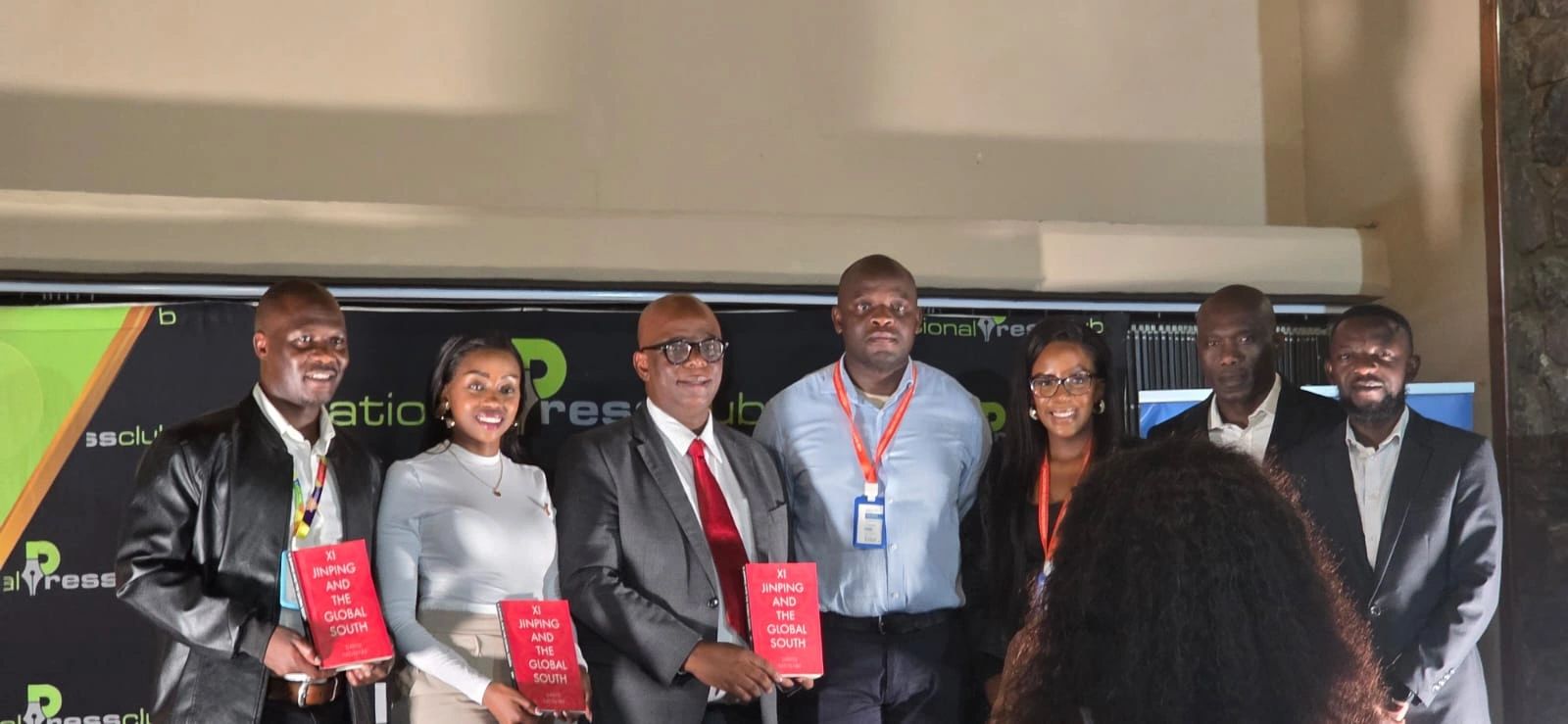On 11 November 2025, the Pretoria National Botanical Gardens set the stage for a defining moment in South Africa–China intellectual cooperation as the Embassy of the People’s Republic of China, the National Press Club and the University of Johannesburg’s Centre for Africa-China Studies (CACS) launched Xi Jinping and the Global South, the latest book by Professor David Monyae. Professor Monyae, an Associate Professor of Political Science and International Relations at UJ and Director of CACS, examines China’s evolving place in the Global South and the shifting dynamics of global governance. The anticipated book speaks directly to the urgent transformations shaping international politics today.

Distinguished guests included Chinese Ambassador His Excellency Wu Peng, UJ Deputy Vice-Chancellor for Research and Innovation Professor Refilwe Phaswana-Mafuya, and UJ Senior Executive Director Professor Bongani Ngqulunga. They were joined by leading figures from government, industry, academia and the media.
A major highlight was the signing of a letter of intent between Ambassador Wu and Prof Phaswana-Mafuya to establish the Research on Chinese Modernisation Think Tank (RCMTT) within CACS. This new initiative reinforces UJ’s growing role as a continental leader in Africa–China scholarship.
Speakers reflected on the evolution of Africa–China relations, the need for Global South agency in international governance, and Africa’s ongoing exclusion from permanent representation on the UN Security Council.
Prof Monyae said that although global structures remain imbalanced, Global South countries are increasingly asserting their voices and contributing meaningful solutions to shared challenges.
Against this backdrop, Xi Jinping and the Global South emerged as a timely and symbolically powerful publication. In his remarks, Ambassador Wu highlighted how Africa–China relations have become central to the political and developmental agenda of the Global South. He highlighted the importance of intellectual cooperation in shaping more balanced global governance. William Baloyi delivered a compelling review of the book, emphasising its relevance in reclaiming scholarly authority in a field often dominated by uninformed commentary about Africa’s role in global institutions.
Prof Phaswana-Mafuya offered far-reaching reflections on her visits to China, where she engaged with Chinese technological innovation, research systems and cultural heritage. She revisited a persistent global paradox, despite being the region most affected by conflict, Africa still lacks permanent representation on the United Nations Security Council. She stressed that Prof Monyae’s work gives voice to longstanding calls for reform at institutions such as the UN, the IMF and the World Bank. Describing the book as a call to action, she reminded attendees that transforming global governance is not a zero-sum exercise but a necessary step toward a fairer, more representative international system. “It has been one of history’s inordinate paradoxes,” she said, “that Africa, where most global conflicts are concentrated, does not have permanent representation at the United Nations Security Council. It is important that the book has highlighted these misnomers.”
For his part, Professor Monyae reflected on the deep structural imbalances that have shaped the international system and constrained the political agency of developing countries. While these inequities persist, he said that change is underway. “Global South nations are crafting new narratives, asserting their agency, and increasingly contributing innovative solutions to shared global challenges.”
The timing of the launch could not have been more significant. With South Africa preparing to host the G20 Summit in just over a week, the themes of equity, representation and the rise of new centres of global influence resonate strongly.
As leaders prepare to gather on African soil, Prof Monyae’s insights serve as a timely reminder that calls for global reform by the Global South are not attacks on those who benefited from past systems but appeals for a more just, responsive and representative world order.



